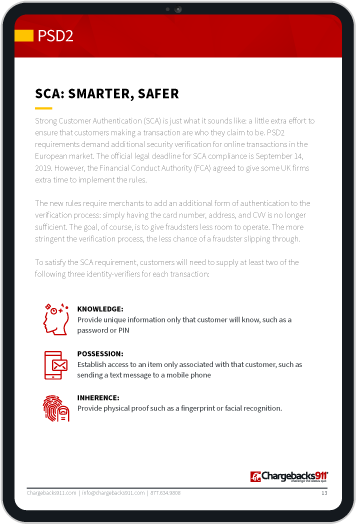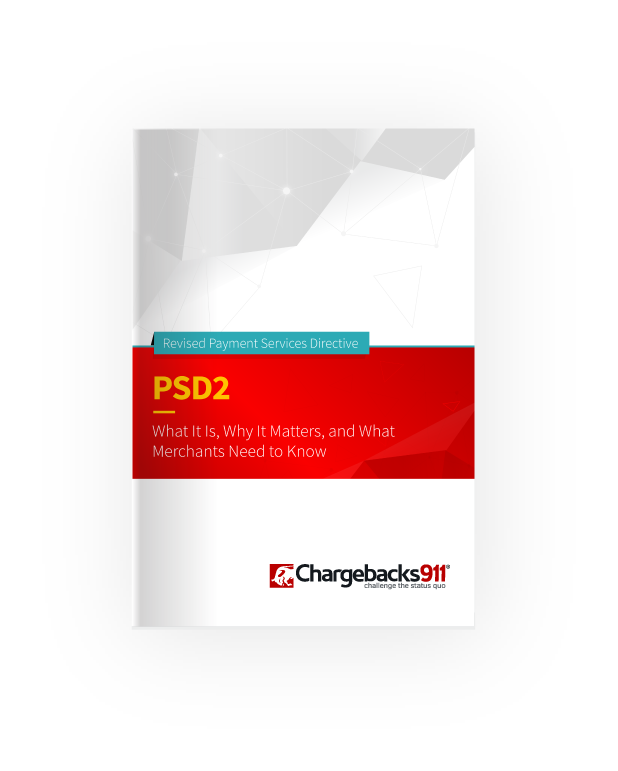How Can Mastercard’s Latest Initiative Help Reduce Fraudulent Chargebacks in the Video Gaming Industry?
If you’re in the video gaming industry, you’ll know the effect that human emotion has on your decision making before, during and after a gamer’s journey into the world you’ve helped create for them. There’s the excitement and thrill of the game itself, the determination to beat their opponent or own personal record, and the willingness to do what it takes to gain any tiny advantage to win.
To create a seamless experience for your players, you’ve enabled them to get back to the action with ease by making the transaction process as streamlined as possible.
We must acknowledge, however, that some video games are designed in a way to capitalize on the emotions of the player. In turn, this can cause problems.
Recommended reading
- Mastercard Chargeback Rules: Guidelines & Procedures
- Mastercard Dispute Resolution: What You Need to Know
- Mastercard Chargeback Time Limits: The 2025 Guide
- Mastercom | What Is it? How Does Collaboration Work?
- What are Mastercard Chargeback Fees? The Rundown for 2025
- The Merchant's Guide to Mastercard Debit Card Chargebacks
The Problem
Microtransactions and in-app purchases are often offered to players as a way to enhance their experience, but also provide additional revenue streams for the company. In the cold light of day, though, the realization of just how much the player has spent kicks in.
Thoughts could turn to ways to recoup the cost of their last gaming session. The player may resort to raising a dispute with their bank, claiming that the legitimate transactions they willingly made were fraudulent, resulting in an illegitimate chargeback against you.
We’re seeing a huge rise in chargebacks across the video game industry, and they’re sapping developers, publishers and platforms of vital revenue. The vast majority of these chargebacks are related to fraud, with players claiming they did not authorize the transaction and that a fraudster somehow initiated the purchase without their knowledge or permission.
There are many ways for gaming companies to mitigate illegitimate chargebacks, such as secure authorization and representment. However, there is a new solution coming down the track in October 2024 in the US.
It’s being brought to you by Mastercard, and is called the First-Party Trust Program.
How Does it Work?
Essentially, if a merchant can demonstrate that a cardholder has a historical transactional relationship with them, it will potentially prevent an illegitimate chargeback from being filed against them. This is particularly pertinent to the gaming industry as a large proportion of players will have made prior purchases before they reach the point of buyer’s remorse.
Say a customer contacts their bank to dispute a transaction on their account as unauthorized. The bank processes a chargeback under reason code 4837. Through the Mastercard FPT program, the merchant is able to provide compelling data to the bank to demonstrate that the cardholder had made at least two previous transactions with the merchant but not reported them as fraud.
You must opt in to participate in the program. The program is not mandatory and only applies to participating merchants.
Also, the relevant data needs to be available to present to the issuer. This means merchants should have the technology in place to capture, securely store and transmit the key data elements.
What Crucial, Key Data Can Stop The Chargeback?
The previous two transactions must be made at least 120 days before the disputed transaction, but no more than 365 days. The merchant must provide data that demonstrates cardholder participation and authorization in these two previous transactions from three categories of data. At least one each from the device and delivery factor categories and one from the additional factor. Any unused element from the device or delivery factors can be used instead of the additional factor.
| Device Factor | Delivery Factor | Additional Factor |
| Device Fingerprint | Shipping Address | Account ID/Login |
| IP Address | Email Address | Telephone Number |
| Device ID | Device Location | |
| User Device Name | ||
| Billing Address |
How Do the Required Data Elements Reach the Issuing Bank?
There are two methods of transmission: the pre-authorization and pre-dispute channels. Merchants can use one or both channels to participate.
Merchants can share the required data gathered during the pre-auth stage of the transaction process through the use of Identity Check Insights. The data is stored and ready to be presented in the event of a fraud chargeback.
Merchants must enroll in the Identity Check program prior to enrolling in the First Party Trust Program to enable the collection and transfer of the necessary data.
If the merchant has Ethoca Customer Clarity, the necessary data can be transmitted through this channel to pre-emptively reject the fraud chargeback as it happens. To use this channel, merchants must enroll and integrate with Ethoca Customer Clarity API prior to enrolment in the First Party Trust Program.
Mastercard will cross reference the data for the two previous transactions with the disputed transaction and, if they match, the liability shifts to the issuing bank.
What Advantages Will the First Party Trust Program Provide to the Video Gaming Industry?
Does all this sound familiar? It may, as Visa introduced their Compelling Evidence 3.0 initiative in 2023 with essentially the same principles of chargeback deflection.
Although there are differences in how the data is shared, both networks have determined that providing an historical transactional relationship between the merchant and the cardholder with no related claims of fraud can provide the basis for a shift in liability from merchant to issuing bank.
This will offer several key benefits for merchants, including:
The Key Takeaway
Defending against chargebacks is time consuming enough without having to spend valuable resources fighting against the increasing number of illegitimate disputes brought about by rueful gamers. That’s why the submission of comprehensive evidence in real time is so important. If you can demonstrate that the transactions in question were made willingly and match past transactions not previously reported as fraud, you can cut down on the unnecessary allocation of resources.
In short, you’ll need to have the capability to capture, store and present the right data. It’s vital that merchants in the video gaming space have the technology in place to protect yourselves against illegitimate chargebacks. Data is the crucial component in that protection.
Of course, the First-Party Trust Program is not a silver bullet and won’t protect your business from illegitimate chargebacks in isolation. It needs to be part of a comprehensive mitigation strategy that addresses the numerous root causes of chargebacks.















